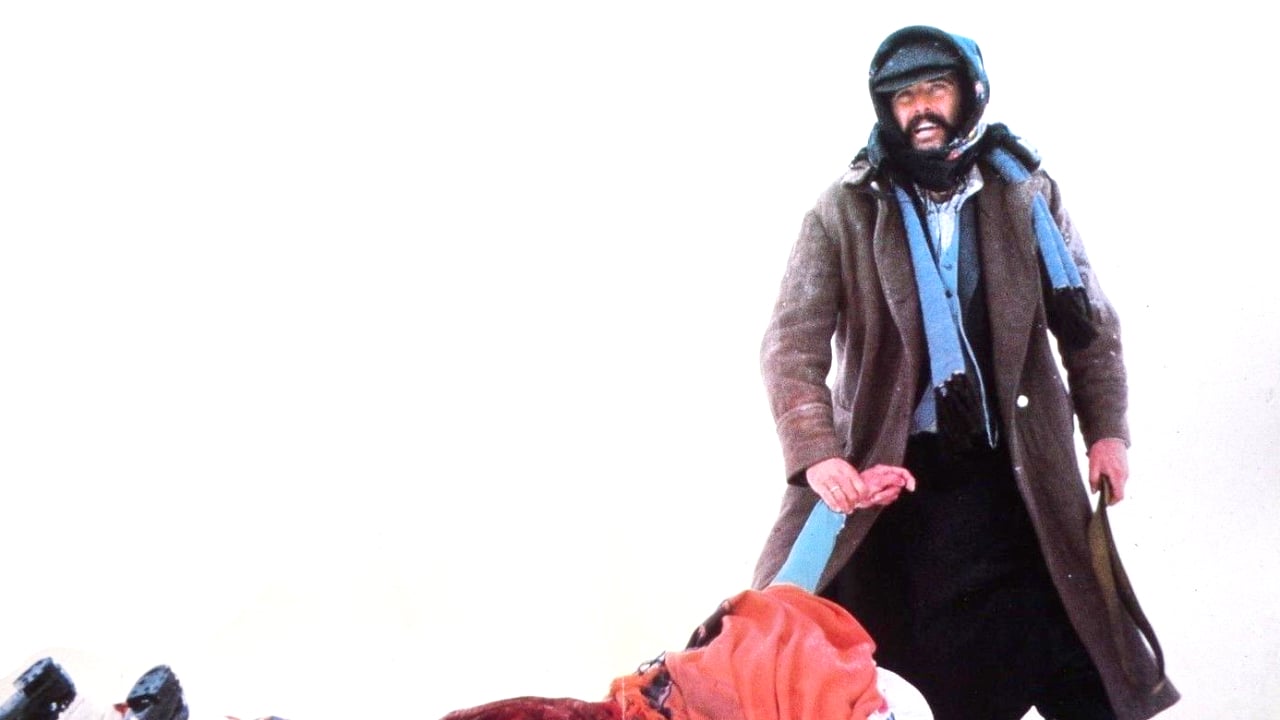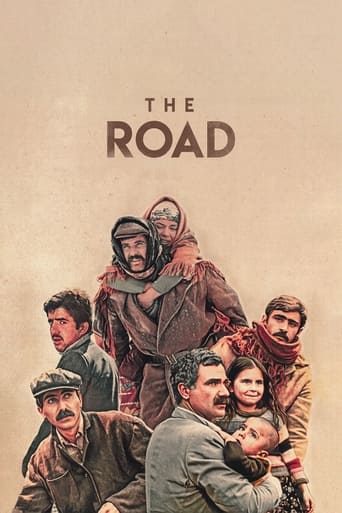Twilightfa
Watch something else. There are very few redeeming qualities to this film.
Mischa Redfern
I didn’t really have many expectations going into the movie (good or bad), but I actually really enjoyed it. I really liked the characters and the banter between them.
Zlatica
One of the worst ways to make a cult movie is to set out to make a cult movie.
Stephanie
There is, somehow, an interesting story here, as well as some good acting. There are also some good scenes
gavin6942
A harsh portrait of Turkey, its people and its authorities, shown through the stories of five prisoners given a week's home leave, and the problems they encounter in adjusting to the world outside.There are many things that can be taken from this film. One is just how much life and world changes when you're not looking. The men of this story return to the city and see vast differences. Granted, there has been a regime change, so the differences are massive. But if you return to any place after five or more years, you will see the world carries on.The most interesting thing, though, is clearly the production. This may be the only film ever directed by someone who was not even on the set or at the location... because he was in prison. And then he escaped so he could edit! But it does raise the question of who the real director is, considering the person on-site really had the final say.
guneria
What made me watch this movie is that both l heard it from my friends a lot and also Yılmaz Güney's name is enough to watch it.Both in Persian and Arabic, "traveling" means "mosaferat" and the "person who is traveling" is "mosafer".It is a common fact that Turkish has been affected by these two prosperous languages. Turkish has these two words in its dictionary as well, but with a different meaning; that is to say, "guest" or " being a guest" . What l am trying to say is that Güney is expressing life itself in a fascinating way. Living the life is the mood of "being on a road".The life of Turkey in which Kurdish people go through after 1980 Turkish coup d'état. The life that especially the Kurdish people but the humanity in general experience. If the Kurdish people lose in the social and political life, they actually lose everything including family, wife, children, love, hope and so on.The two impressive scenes for me: 1) The wife of Seyit Ali dies at the exact point where his horse dies while he is going to get her.2)Because of traditional affairs, one of the prisoner cannot marry with the girl he loves. The girl is so beautiful that he falls in love with her immediately after seeing her.Instead, he marries his sister-in-law. When he goes back to prison the beloved girl cannot do anything but stare back behind her lover.
Lee Eisenberg
Turkey is officially the only functioning democracy in the Middle East, along with Israel. But "Yol" shows that regardless of Turkey's official classification, it does have political prisoners. In this case, five of them are given a leave so that they can visit their families. While on their leaves, they (and the audience) get to see the realities of life. They may have been released from prison, but there are some metaphoric prisons that we can never escape, no matter how free we consider ourselves.It was interesting that Yilmaz Guney managed to make this movie from jail. He did a very good job here.
Tilly Gokbudak
I am completing a thesis on Turkish cinema. I have seen many Turkish films, and I think this is definitely one of the five best and certainly the best one of its' era though the underrated "Polizei" which "Yol"'s co-director Serif Goren helmed is right up there. "Yol" is amazing for many reasons. I have heard some amazing Hollywood back stories of how films like "MASH" and "Apocalypse Now" were hellish shoots. But, none of them matches what the filmmakers did on this project. "Yol" was secretly filmed, and the entire cast, which included box office icon Tarik Akan risked being blacklisted. The film was subsequently banned in Turkey until 1992, and it was not shown theatrically there until 1999. It is a scathing indictment of political and social oppression in Turkey in the early 1980s. Symbolism is used throughout the film, with birds representing freedom, horses representing virtue, and women representing oppression. Many Westerneners have labeled Yilmaz Guney, Turkey's best known director who envisioned "Yol" from his prison and then while in exile, a champion of feminist ideals. But, if one sees some of his earlier film like "Canli Hedef/Live Target" they might be in for a surprise (that film features an off-camera rape of a 10-year old girl). I like Guney's films but I agree with Serif Goren's assessment that his contributions to "Yol" were completely overlooked. Goren proved to be a capable director in his own right, and his film "10 Kadin/10 Women" is perhaps the essential film for expressing ideals which are sympathetic to feminism- a movement that I sympathize with in terms of Turkey, but am neutral towards in the West. "Yol" also deals with Kurdish suppression. One of the more poignant moments in the film comes when Halil Ergun's character comes to back to his hometown Diyarbakir (in Eastern Turkey) on the train during his prison leave. He comments how strange it is to be back home. The central theme of the film is that the oppressive elements of prison life are evident just as much on the outside. Personally, I think Turkey has made significant progress in recent years. It is a shame that except for Michael Moore, Barbara Kopple, and Tim Robbins, very few American film makers take these kinds of risks that Guney and Goren did with "Yol." In my view, the more recent Turkish film "Distant" has surpassed "Yol" as the best Turkish film ever made, but this is still a magnificent artistic achievement which can be merited as a classic in terms of international cinema.

